Shared parenting is where parents who live apart share the care and responsibilities for their children as equally as possible. You may share parenting with a husband, wife or partner you’ve now split up from, or you may never have been a couple. Whenever it's safe and possible, children benefit from positive relationships with both parents, but it isn’t always easy to maintain this, especially if you’ve been through a bad breakup.
Shared parenting tips
Here are some tips that can help make co-parenting easier for everyone.
Tip #1: Make a Parenting Plan
The Parenting Plan is a guide for parents who live apart or who are going through a separation. It gives you the help you need to put aside any differences you may have with each another and agree on arrangements that will bring stability and continuity to your children’s lives.
Making a Parenting Plan can also help prevent future disagreements about parenting issues. You can decide things like where your children will live, when you will each look after them, when they’ll see other family members, and what you’ll do during school holidays and on special days like birthdays and Christmas. It can also help you agree on things like money matters, health issues and how you’ll update the plan as your children grow up.
If you have more than one child, you may want to have a plan for each of them, especially if they’re very different ages.
It’s a good idea to talk to grandparents and other family members when you’re making your plan, to see how they can best support you and your children. The Parenting Plan includes a Charter for Grandchildren which you can find out more about here.
If you’re finding it hard to agree on your plan, you can get help from a mediator or solicitor. You can find out more about mediation on the Relationships Scotland website.
Tip #2: Remember that stability is more important than family structure
Families come in all shapes and sizes. And research shows that it’s not a set family structure that matters the most, it’s responsible, committed and stable parenting by people who genuinely care about the child that helps children get the best start in life.
Tip #3: Understand your rights
It’s important to understand the rights you and your partner have to have contact with your children, and to support them financially. There’s lots of useful information on the One Parent Families Scotland website about:
- Parental Responsibilities and Rights and who can make decisions about you child
- Child contact arrangements
- Child maintenance
The Shared Parenting Scotland website also has lots of information on your rights.
Tip #4: Understand your children's rights
Your children also have rights under the United Nations Convention on the Rights of the Child and you can support these rights when you’re making arrangements for your children. These include:
- The best interests of the child should be considered in all decisions and actions that affect children.
- Children must not be separated from their parents against their will unless this is in their best interests (for example, if a parent is hurting or neglecting a child). Children whose parents have separated have the right to stay in contact with both parents, unless this could cause them harm.
- Every child has the right to express their views, feelings and wishes in all matters affecting them, and to have their views considered and taken seriously.
You can find out more about these rights here and on the UNICEF website.
Tip #5: Keep things civil with the other parent
Whatever went wrong in the past, try and form a new relationship with your ex-partner that’s all about caring for your children. It may help to think about them as a colleague you’re on a team with, and treat them in the same way you’d treat someone at work, in a respectful, business-like way.
You can find lots of helpful tips for communicating with your children’s other parent on the Relationships Scotland and Shared Parenting Scotland websites and in the Parenting Plan.
Tip #6: Support your children’s relationship with their other parent
As long as it’s safe to do so, it’s important for your children to have a good relationship with both their parents. So whatever feelings you may have about the other parent, make sure your kids understand that it’s okay for them to still love and spend time with them.
Tip #7: Double up
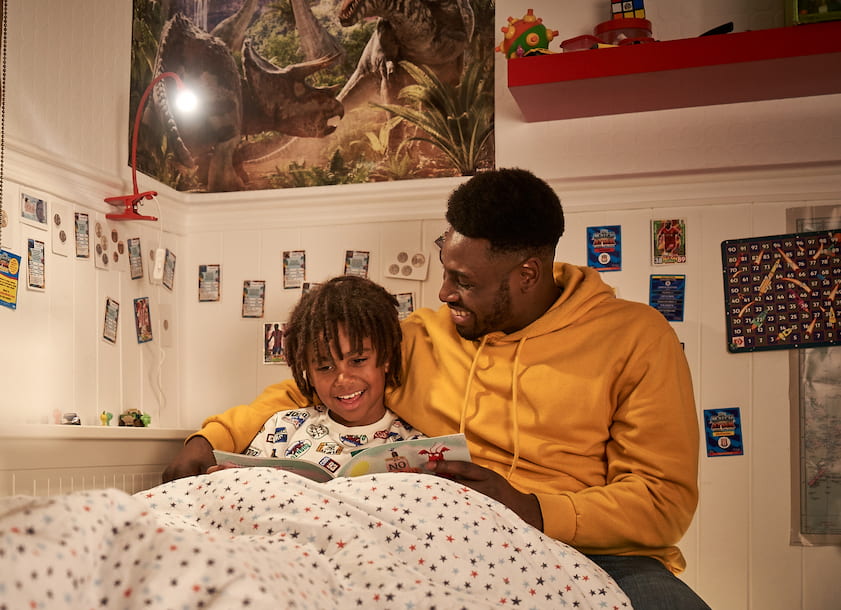
If your children move between your home and their other parent’s, try to ensure they have basic things like a toothbrush and nightclothes at both homes, so they feel as if they belong there and don’t have to keep packing and unpacking like a visitor.
Tip #8: Stay involved with your child's learning
If your child doesn’t live with you, you may start to feel a bit removed from what’s going on at their school. But (unless there’s a court order in place to stop it) the school should treat you in the same way as the parent your child lives with, for example, sending you both invitations to parents’ evenings and letting you know about your child’s progress.
If you have time, it can help you feel more involved if you volunteer at your child’s school, for example, to help out with school trips or coaching sports teams. You can find more tips for staying involved in the Parenting Plan.
This guide from Children in Scotland has more information on your rights if you don’t live with your children.
Tip #9: Agree in advance how you’ll spend holidays and other special days

How your child spends their holidays and special days like Christmas or their birthdays can be a source of upset, so it’s best to agree this in advance – again, this is where a Parenting Plan comes in really handy.
For example, you might want to agree that they’ll spend alternate birthdays and Christmases with each parent, or even that they can have two Christmases and two birthdays. If your kids are old enough to understand, you can involve them in making the decisions.
You’ll find lots of helpful advice on managing holidays and special occasions on the Gingerbread website.
Tip #10: Make plans for the time your child spends with their other parent
If you find the time your child spends with their other parent hard, try to find nice things to do to make it more bearable. For example, you could meet a friend, take up a new hobby, go for a walk or enjoy some restful ‘me time’ at home. Our page on mental health advice for parents has more ideas of things you can do to keep calm and reduce stress.
Tip #11: Keep the children informed
Sometimes, inevitably, you or your ex will need to change plans you’ve made with your children, for example, if you’re ill. When this happens, make sure you explain to your children why, and arrange another time to see them as soon as you can.
Introducing a new partner
If you meet someone else, this can be an exciting time for you but it can also be hard for your children – and their other parent. Children can find it hard to accept a parent's new partners. They may see it as a reminder that their mum or dad aren’t going to get back together, or be worried that this will lead to more change for them. They may resent any time you spend with a new partner, or feel that if they start to like them they're betraying their other parent.
Many parents only introduce new partners to their children (and their other parent) when they're sure the relationship will last. Whenever you feel the time is right, it's important to take things slowly.
It’s also good to keep their daily routines as consistent as possible and give them plenty of time to adjust. There are lots of helpful tips on the Relationships Scotland website to help your children adjust to having a new adult in their lives.
 Activities & Play
Activities & Play Behaviour
Behaviour Childcare
Childcare Development & Growing Up
Development & Growing Up Family, Friends & Relationships
Family, Friends & Relationships Feeding Your Baby
Feeding Your Baby Food & Eating
Food & Eating Health & Safety
Health & Safety Mental Health & Wellbeing
Mental Health & Wellbeing Money & Work
Money & Work Online Behaviour & Safety
Online Behaviour & Safety Pregnancy & First Days
Pregnancy & First Days School & Education
School & Education Sleep
Sleep

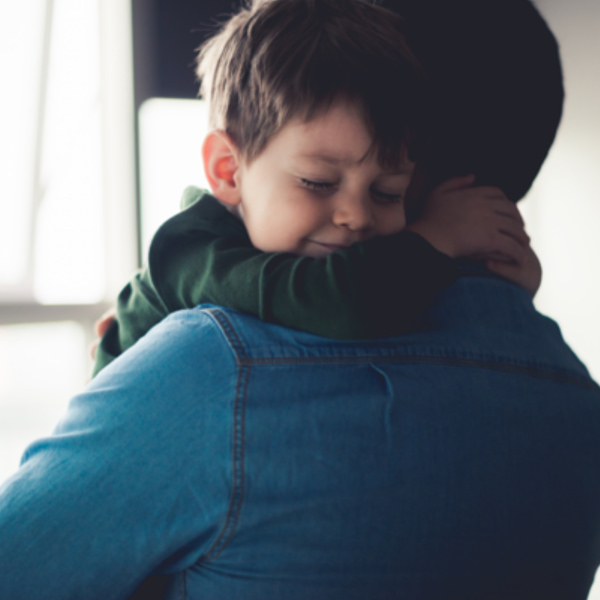

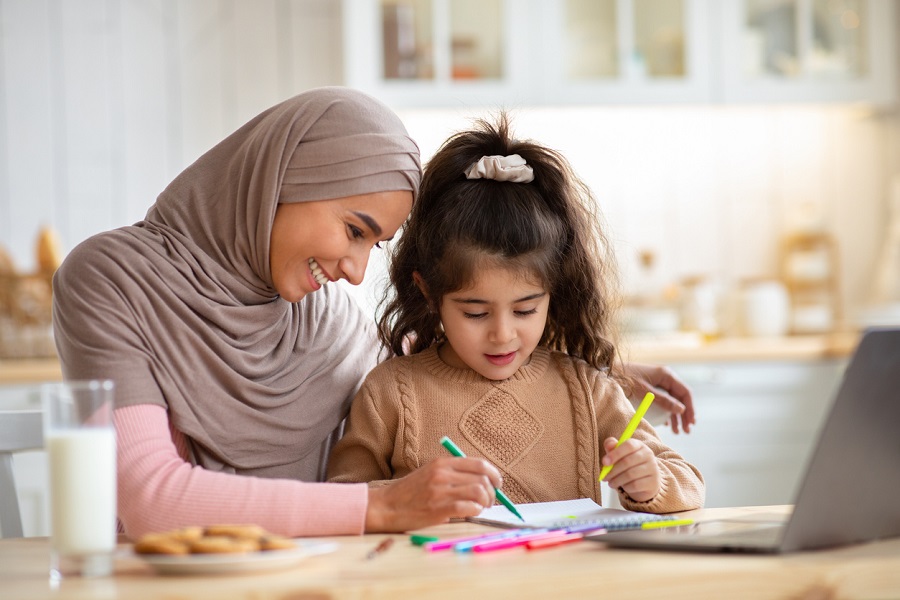

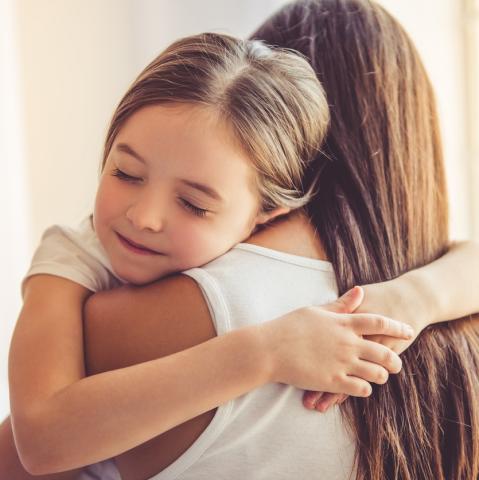
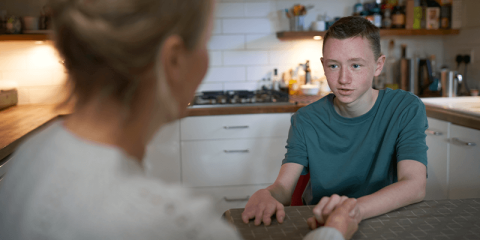

 Mental Health & Wellbeing
Mental Health & Wellbeing
 School & Education
School & Education